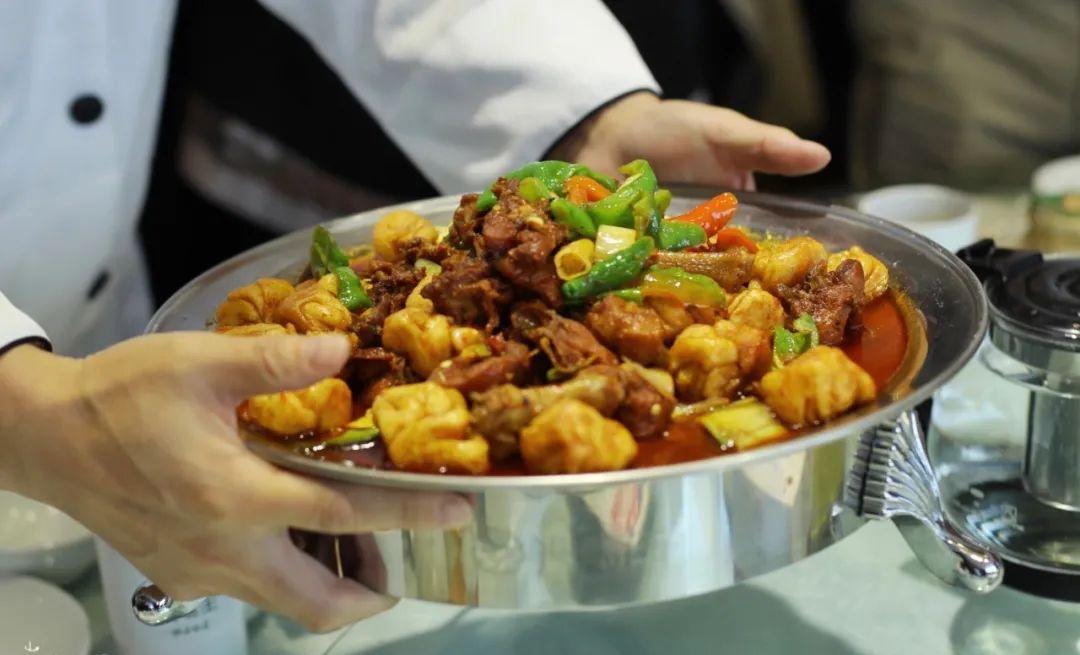I am Thoughtful CS, a little girl in Gangnam, click "Follow" above to share your travel and life with you.
I threw out a small question that day, and the general content was like this:
If xinjiang large plate chicken can represent Xinjiang, pot wrapped meat can represent Heilongjiang, snail powder can represent Guangxi... So which dish represents Jiangsu?

Xinjiang large plate of chicken
Pot wrapped meat
Blame only Jiangsu cuisine is too much!
Jinling cuisine, which extends from Nanjing to Jiujiang, Jiangxi; Huaiyang cuisine originating in Yangzhou and Huai'an; Suxi cuisine that originated in Suzhou and Wuxi and was once popular in Shanghai and Changzhou; Xuhai cuisine that originated from Xuzhou to Lianyungang.........
Among them, Huaiyang cuisine is divided into Huai cuisine and Yang cuisine, and Su Xi cuisine is divided into Su Bang cuisine and Xi Bang dish.
In fact, in Jiangsu, Xuzhou's ground pot chicken, Nanjing's brine duck, lion's head, duck blood vermicelli soup, Yangzhou's large boiled dried silk, Wuxi's sauce ribs, Suzhou's Wansan hooves, squirrel cinnamon fish.......
Each dish is famous, but it does not represent Jiangsu.
Large boiled dried shreds
Mansan Hoof
Squirrel cinnamon fish
In countless messages, many people have said that Xinjiang lamb kebabs can also represent Xinjiang, but Xuzhou people do not agree!
Forgive me for being lonely, I learned a few days ago that Xuzhou is the birthplace of lamb kebabs, and barbecue originated in Xuzhou, which is said to be recognized by the world?
I have always thought that the traffic overlords in the barbecue industry are Xinjiang kebabs and Northeast barbecues, so I have curiosity to go deeper into it.
Xinjiang lamb skewers
Xuzhou ancient called Pengcheng, food culture has a long history, Pengzu is the recognized ancestor of China's culinary circles, it is said that the chef worships the grandfather is Pengzu.
Xuzhou people say that it is really a little difficult to find a dish with a masterpiece to represent Xuzhou, because Dao Dao is a classic!
Pei Gong Dog Meat, Overlord Bieji, Sheep Fang Tibetan Fish, Ground Pot Chicken, Pheasant Soup, Four-Hole Carp, Fried Pecking, Dragon Gate Fish... It's too much.
In the Xuzhou Folk Customs Museum, there are Han portrait stone rubbings, which depict the ancients fanning a fan next to the stove to grill meat, which is indeed a historical reference.
"Big gold chain, small gold watch, three small barbecues a day." It turns out that Xuzhou is the originator of the string! I always thought that no sheep could leave Xinjiang alive, and it turned out that no sheep could leave Xuzhou alive.
Xuzhou is located in the qinling-huai river north, in my memory, like a northern city, taking to the streets, can not hear half a sentence of Wu Nong soft language. Moreover, the culture here is also mixed with a lot of Qilu culture and Central Plains culture.
"Free shipping is also heated", which is the pride of Xuzhou people.
I remember someone once said: There is nothing in this world that a barbecue can't solve, and if there is, then two meals.
The nightlife of Xuzhou people can be summarized in two words: barbecue.
In Xuzhou, there is nothing on a sheep that cannot be roasted. Lamb, lamb chops, meat tendons, plate tendons, hoof tendons, tails, all kinds of livers. But unlike Xinjiang, Xuzhou people eat goats.
Countless trips to Xinjiang, the night of kebabs and red Wusu, is always nostalgic.
Also go to Shenyang, Dalian, Changchun, Harbin, Jilin and other places in the northeast, have eaten many barbecues, a bottle of harbin beer or a bottle of old snow, three or five friends, is a perfect night.
But it is said that Xuzhou people eat barbecue, and the degree of luxury is not lost to the northeast and Xinjiang. Therefore, Xuzhou, which is of "mixed north and south", is also known as the city of barbecue.
Well, for the sake of food, I would like to go to Xuzhou again.